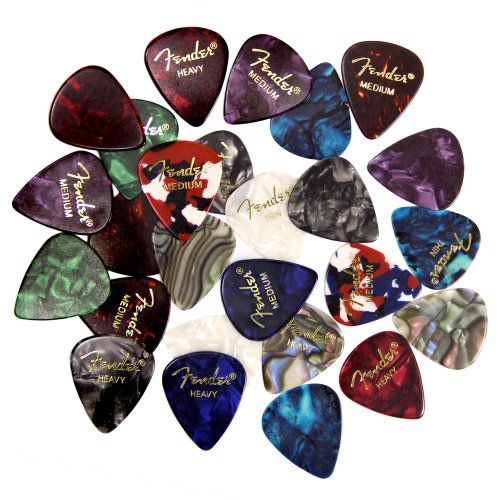
The best thing is that guitar picks are so cheap that you can buy a whole bunch and experiment! Try as many as you can to find which is right for you. Ultimately, choosing the best guitar pick for you is balancing all of these variables of grip, tone, shape, flex and feel. Many find smaller shapes can help with picking efficiency. It will affect your grip and the contact the pick makes with the strings, with sharper, bevelled points catering to shredding styles and rounded points increasing the amount of contact you make with the string. The shape of a guitar pick is another huge aspect to consider. Celluloid on the other hand, was introduced as a substitute for tortoiseshell and performs similarly, but it wears quite quickly with heavy use a Fender 351 classic can soon almost be shaped to the player’s grip. Some materials, such as Ultex, are more durable. The material can have a huge effect on how your guitar sounds, as well as how it feels and how your strings respond to the pick. Historically, picks have been made from steel, bone, tortoiseshell, wood or abalone shell, but are now most commonly made from synthetic materials such as celluloid, acrylic, Delrin, Ultex or nylon.

#Guitar picks upgrade#
Upgrade you lead with our guide to the best guitar cables.Secure your axe with the best guitar straps around.

If you’d rather get straight to the products, then keep scrolling. If you’d like to read more expert buying advice about the best guitar picks, then you can click the ‘buying advice’ tab above. Not sure where to start? You’ve come to the right place… As a beginner guitarist a change of plectrum might change your style, so it’s definitely worth trying out a few different types, and reading up on a bunch more. Heavier guitar picks offer more control, but using one requires a bit more skill than lighter guitar picks which are often used by beginners. However, some guitar picks can measure up to 3.0mm in thickness. Just super glue small neodymium magnets to the back of guitar picks, that's it! Design differences aside, picks are easily damaged or lost (even with magnets) and I wanted an inexpensive alternative to a slick commercial version commercial magnetic picksġ0 - guitar picks aat local music shop $3ġ2 - 1mmx10mm nydynimum magnets from DealExtreme $5.Most of us will use a pick in our playing career (unless you’re Brian May, who used a British sixpence to develop his unique sound) and it’s important we find one that’s just right – which is exactly why we've compiled this round-up of the best guitar picks available today.Īs our playing evolves, our taste in picks may change, but it’s always good to have a variety on hand. The thickness of guitar picks are generally measured in millimeters (mm) and normally range from 0.38mm (thin) to 1.5mm (thick). I read this article about a company that sells magnetic guitar picks, but after seeing the price of ONE pick was $4 (not including shipping) I decided to make my own.

These picks are a fun way to show your nerdy side while rocking out, they're fun and inexpensive to make. Make sure you have your guitar picks close by making magnetic guitar picks! You can stick these magnetic picks to your strings, tuning heads, mic stand, or anywhere else you might need a guitar pick.

Every guitarist needs a pick, whether it's beachside strumming or arena shredding.


 0 kommentar(er)
0 kommentar(er)
